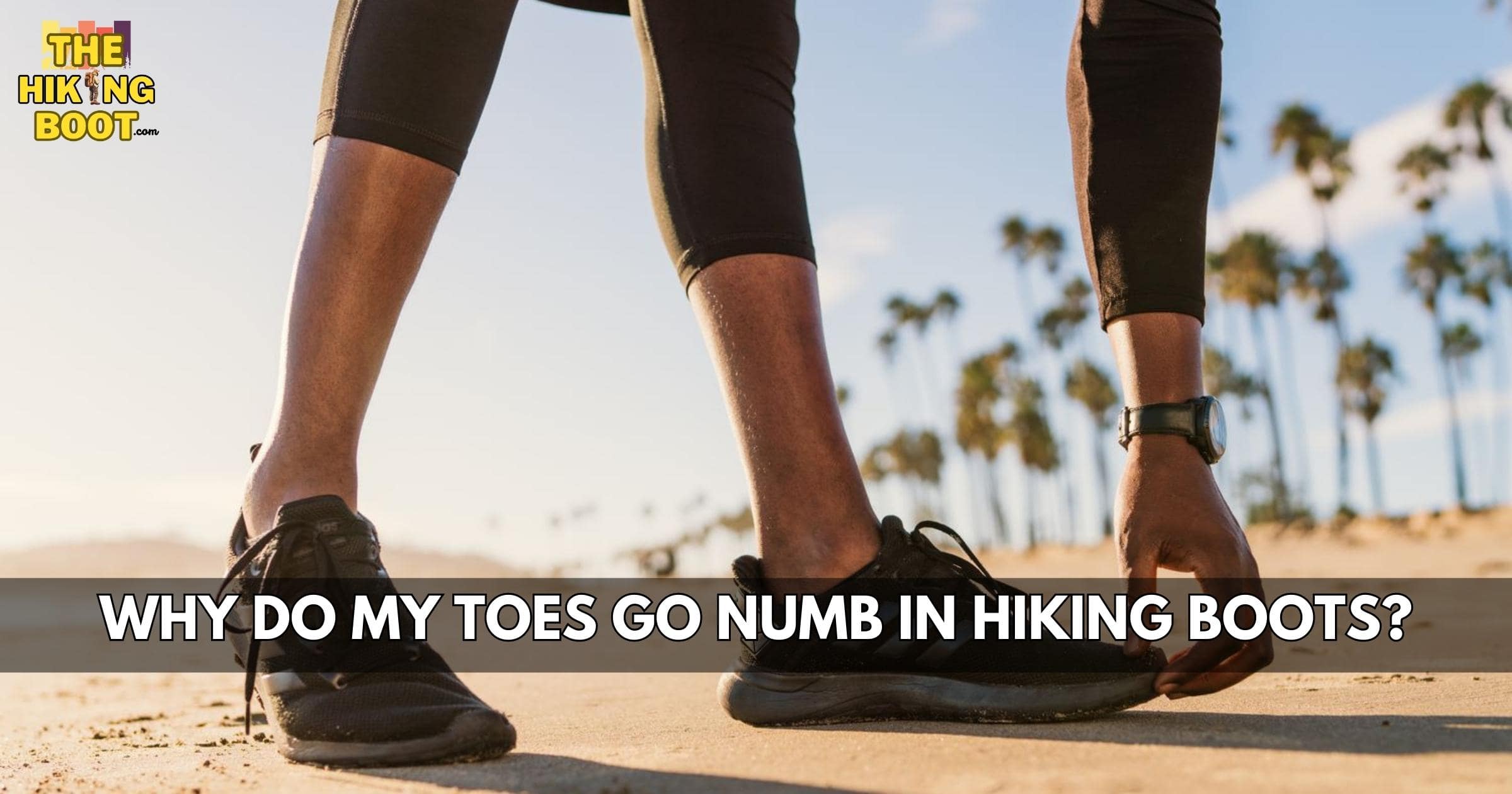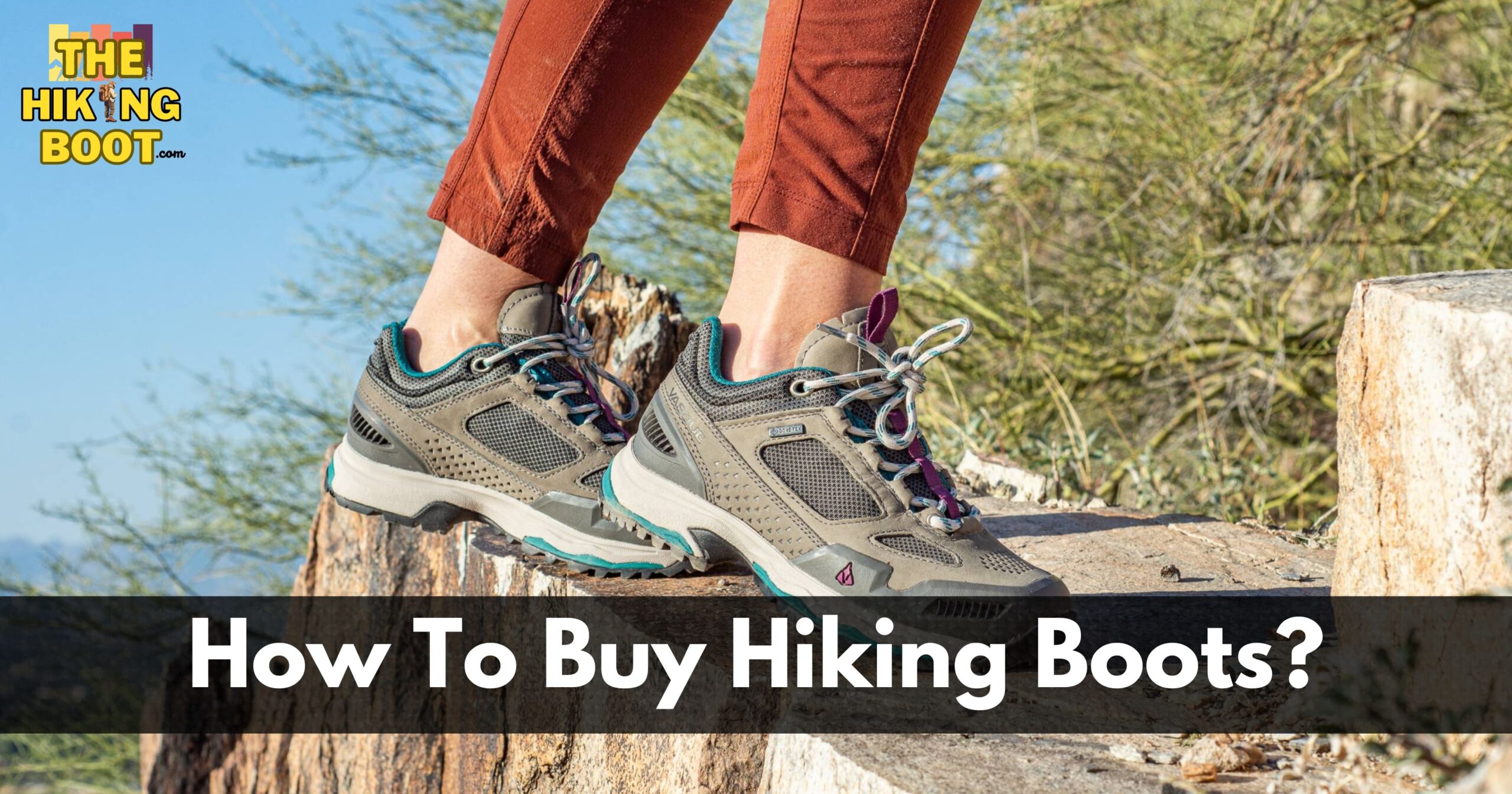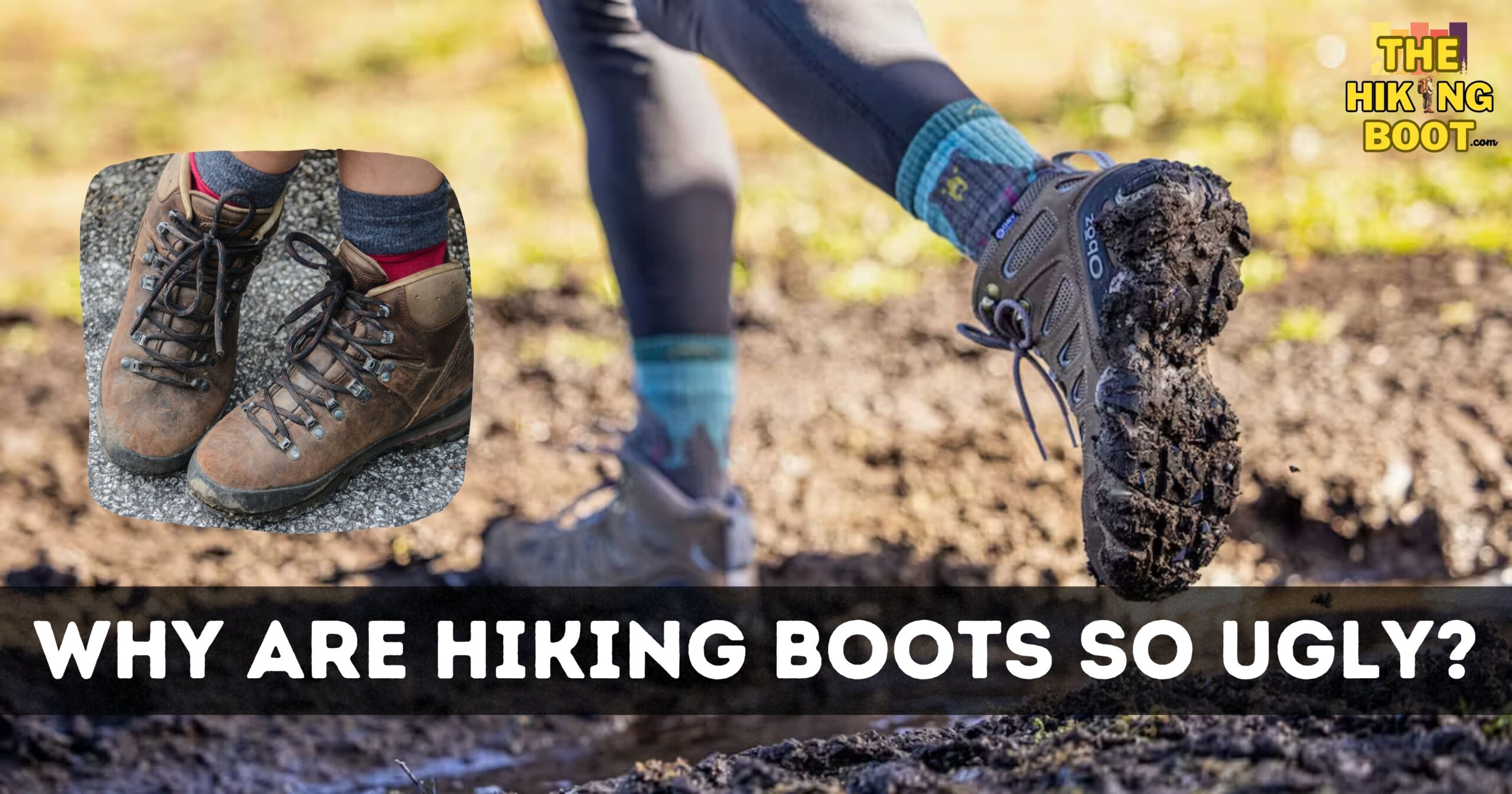Are you one of the world’s many passionate hikers, trekkers, or climbers who sometimes experience tingling numbness and discomfort in your toes while wearing hiking boots?
If so, then this blog post is for you! We will discuss ways to alleviate this common concern – from different lacing techniques to buying appropriate equipment so your next venture into nature remains comfortable and enjoyable.
So before packing up those hiking boots in favor of sneakers, read on; we may have a few helpful tips to ensure that all your body parts remain uncompromised during future hikes.
Causes of Toe Numbness in Hiking Boots
The most common cause of numbness in your toes while wearing hiking boots is a lack of proper fit. Hiking boots should be snug but not overly tight; an uncomfortable tightness around the foot can restrict blood flow to the toes and lead to numbness.
If your lacing technique allows too much wiggle room for the heel, then this could result in the toe area being over-tightened, which could also cause numbness.
Other causes of toe numbness include wearing inadequate socks or boots too small for your feet.
Poorly designed hiking boots may not securely cup the heel, resulting in a lack of arch support and additional toe strain. Lastly, cold weather can also lead to numbness.
How to Keep Your Toes from Going Numb
If you’re looking for ways to keep your toes from going numb while hiking, one of the simplest solutions is to ensure your boots fit properly.
The heel should be securely held in place, allowing no room for movement. Also, lacing techniques can affect foot comfort; if possible, try starting at the top and tying a loop knot with your laces, providing a snug fit without being too tight.
Furthermore, wear good quality socks specifically designed for hiking; these offer greater cushioning than regular socks and help protect your feet from the elements. Ensure that your boots are large enough so as not to cause any restriction or crowding in the toe area.

Insoles, Orthotics, and Other Solutions for Toe Numbness
If you’ve tried all the above steps to reduce toe numbness while hiking but are still not finding relief, investing in a pair of supportive insoles or orthotics may help.
Orthotics are tailor-made shoe inserts that can provide additional arch support and cushioning for your feet; these are especially helpful if the cause of your toe numbness is due to poor foot posture or an underlying condition, such as plantar fasciitis.
Switching to lightweight hiking shoes can reduce pressure on your feet and toes while providing adequate support and protection.
While not all the above methods may work for everyone, these are just a few potential options that you can explore to keep your toes feeling comfortable during future hikes.
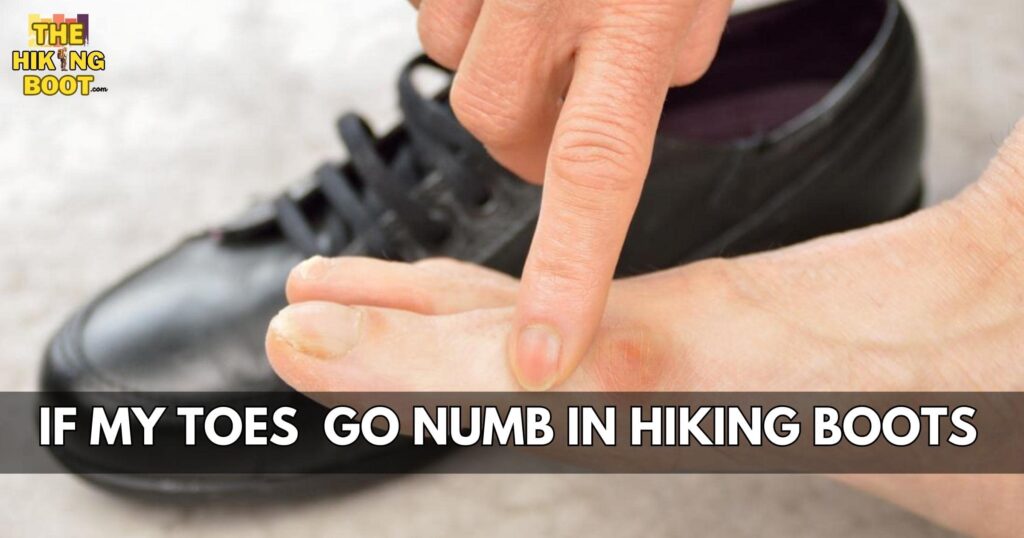
What if My Toes Still Go Numb in Hiking Boots
If your toes still go numb in hiking boots despite trying the abovementioned solutions, it may be wise to seek further medical advice.
You may be dealing with an underlying health issue contributing to your toe numbness. In these cases, a doctor or podiatrist may suggest orthotics or other treatments to help reduce nerve pressure or inflammation.
They may also recommend a different type of boot more suitable for your feet or advise you to wear additional padding in the toe area.
Remember, getting to the root cause of your toe numbness is important so you can enjoy future hikes without discomfort.
It’s also worth investing in a pair of quality.
Tips on Choosing the Right Hiking Boot for You
When choosing the right hiking boot, several important things must be considered. First, consider your foot type; do you have wide feet or suffer from plantar fasciitis? Be mindful of the terrain you’ll be hiking on; what kind of support and traction will your boots need?
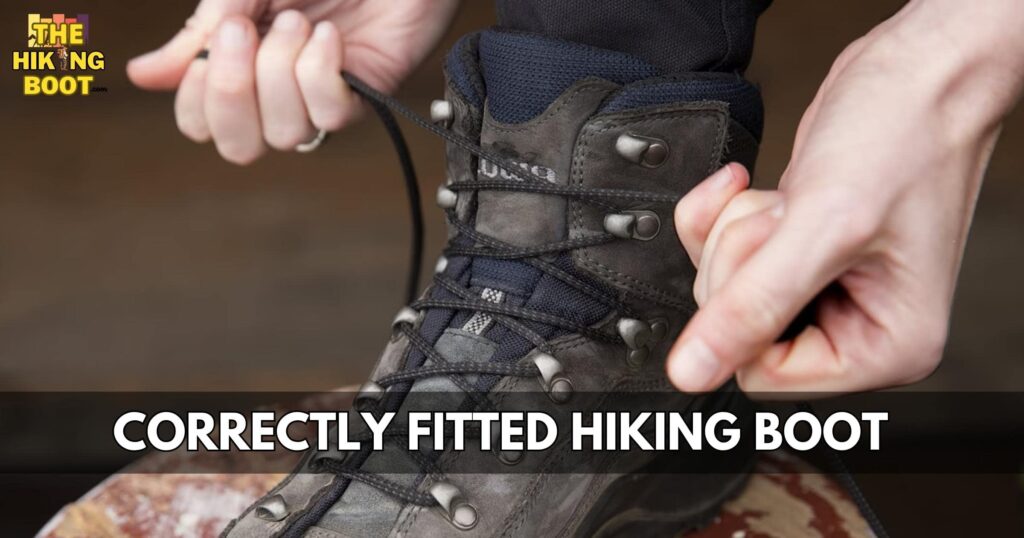
The Benefits of Wearing the Correctly Fitted Hiking Boot
Wearing a correctly fitted hiking boot is essential for both comfort and safety on the trails.
A properly fitting hiking boot will provide cushioning, arch support, stability, and traction to help protect your feet from injury and fatigue.
In addition, it can also help prevent blisters, calluses, and other foot problems common when wearing an ill-fitting shoe.
Conclusion
Finding the perfect hiking boot for your feet can make all the difference regarding comfort and safety while on the trails. Considering foot type, terrain, lacing technique, insoles, and other solutions are all important factors to consider before hiking. With the right boots fitted correctly, you’ll enjoy your adventures article comfortably and with peace of mind. So don’t forget to invest in quality hiking boots that fit properly – your feet will thank you for it!
FAQs
What are the Common Causes of Toe Numbness in Hiking Boots?
The most common cause of toe numbness in hiking boots is a lack of proper fit. Hiking boots should be snug but not overly tight; an uncomfortable tightness around the foot can restrict blood flow to the toes and lead to numbness.
What Lacing Technique Should I Use to Prevent Toe Numbness?
Try starting at the top and tying a loop knot with your laces, providing a snug fit without being too tight.
How Can I tell if My Boots Are Too Small for My Feet?
If your lacing technique allows too much wiggle room for the heel, then this could result in the toe area being over-tightened, which could also cause numbness. Other causes of toe numbness include wearing inadequate socks or boots too small for your feet..
What Other Solutions Can Be Used to Reduce Toe Numbness While Hiking?
Investing in supportive insoles or orthotics may help reduce toe numbness while hiking. Switching to lightweight hiking shoes can reduce pressure on your feet and toes while providing adequate support and protection.
What should I do if my toes remain numb despite trying all the solutions?
If your toes still go numb despite trying all the above solutions, it may be wise to seek further medical advice. A doctor or podiatrist may suggest orthotics or other treatments to help reduce nerve pressure or inflammation.
